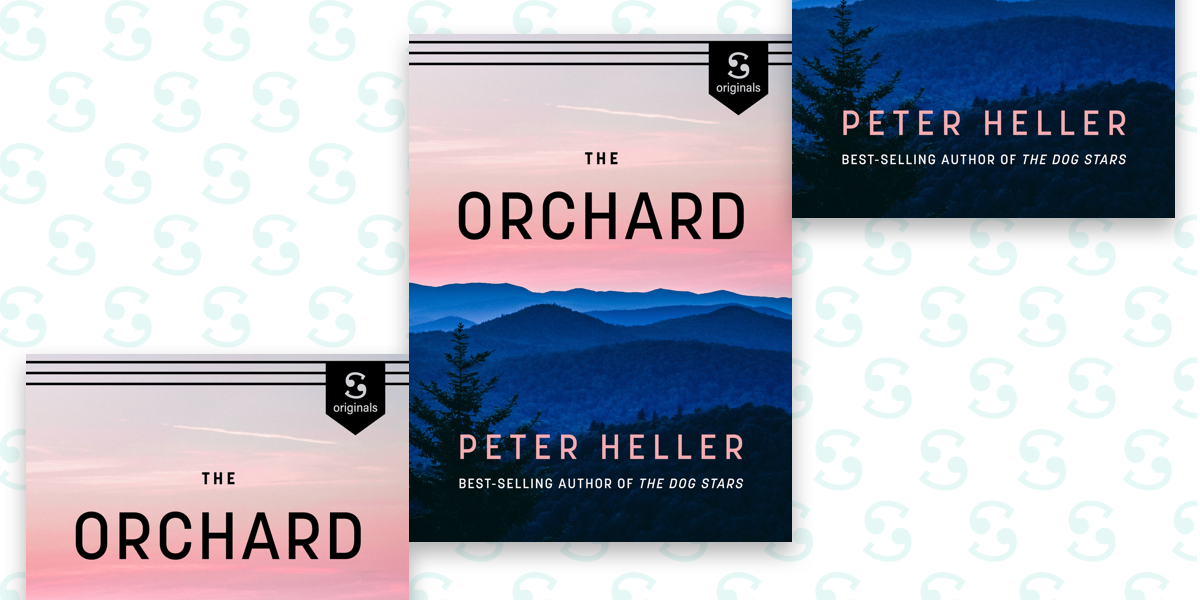
Peter Heller on the origins of his Scribd Original novel, The Orchard.
When I was fifteen I discovered running. It was my first fall in Vermont. I was on the soccer team of a little boarding school on a hill and the coach would send us out to run. We ran down dirt roads and across hayfields and into the woods. We skirted farm ponds and sprinted up tractor roads into orchards where the apples were ripening. I might have fallen in love first with the scents: spicy ferns and cold brooks and sweet fruit and maple trees and white pines. But I loved all of it — the rhythm of the hills, the old farms tucked beneath the ridges, the long climbs. I loved leaping a stone wall and breaking out into the top of a meadow and the long view of a forested valley and the mirroring hills of New Hampshire across the river. I loved myself in this country, what it asked of me and what I gave in return, and in the coming months and years the land and the streams twined themselves into my spirit.
When I was twenty-nine, I got my first writing assignment, for Outside magazine. I was an expedition kayaker, and this trip was an attempt to make the first descent of a river that spilled off the Tibetan Plateau beneath the Himalaya in western Sichuan. I was one of three kayakers; the rest of the group would paddle rafts. One couple was not so experienced, but they were athletic and loved to canoe. They were on their honeymoon, and the expedition leader figured he could put them in separate rafts with six other professional paddlers and they’d do well.
We went out for a training run on a small, steep river, and as we got our gear together, we could see a storm in the mountains and it began to rain. The river was rising fast. By the time we put in, the current was raging. I was warming up, surfing a big wave, and when I peeled off it and came around the corner, I saw one of the rafts doing cartwheels in a violent hydraulic. The raft was empty. I sprinted ahead and saw a helmet bobbing in the water and I spun my stern to give the paddler a tow. He couldn’t grab my boat and we got swept toward a big logjam on the left bank. I somehow hit the shore. He went into the logs. I jumped out of the boat and ran onto the tangled wood and began pulling him from the jam. Scott, one of the other kayakers, was right behind me, and we dragged the man to shore. It was Liu, one of the Chinese guides, still alive. But there was another helmet in the funnel of piled trees. We ran back and tugged on the submerged paddler’s life vest, but he was stuck. We hooked up a rope-and-pulley system but couldn’t budge him. We struggled to hold his head out of the water as the river rose. It rose over his head and he died in our arms. It was Dave, the enthusiastic canoeist who was on his honeymoon. In shock, Scott and I paddled across the torrent to tell his wife that her husband was gone.
She took his ashes home two days later. On the third day we gathered by the river, which had subsided and seemed peaceful now, and we sang “Amazing Grace” and I read a poem. It was from a book called One Hundred More Poems from the Chinese, translated by the poet Kenneth Rexroth. I thought that, on my first assignment, I would bring a book of poetry from the heart of the place, to get a feel for the country. The poem I read was “When Will I Be Home?” by Li Shangyin. It was written in the ninth century, during the Tang dynasty.
When will I be home? I don’t know.
In the mountains, in the rainy night,
The Autumn lake is flooded.
Someday we will be back together again.
We will sit in the candlelight by the West window,
And I will tell you how I remembered you
Tonight on the stormy mountain.
Maybe it was my own grief, the yellowing leaves and smells of autumn, the shock of sudden loss, but the poem struck me as one of the most beautiful I had ever read.
That’s how I discovered the poets of the Tang dynasty. Many of them were ministers and scholars of the court at Chang’an, men and women who often were sent into exile and roved the mountains and rivers, and visited friends along the way, and drank too much rice wine, and composed songs and poems for each other in the bamboo groves. They mourned their losses and found more beauty and deep joy in the cadence of language and in friendship, in rivers and mountains, than any poets I had ever read. Their simplicity and unadorned imagery and startling associations cracked my universe open and pierced my heart.

When I sat down to write a novel last year, I closed my eyes and listened for a first line, as I always do. I never plan or plot but just listen for the music of the words, and I let my spirit travel where it wants to go. And so it was not surprising that the first lines led into a poem by my imagined Tang poet Li Xue, and that her poem led to a little girl who lived in the hills of southern Vermont. In an orchard, the one I ran through for years in every season.
At the beginning of the novel, two great loves, one literary and one for a place, began to braid together.
Li Xue’s poems came to me fully formed, as if remembered, though she was fictional. And Frith, the little girl, did, too. And Frith’s mother, Hayley, the young but legendary translator of Li Xue—she was as alive to me as anyone I have ever loved. As was their big mutt, Bear.
For a novelist, this is the greatest boon. That they all spoke to me feels like a great honor.
In my heart, they are living now. Hayley is at the cabin table, assembling the lines of the ancient poems by lantern light. Her own loves and losses are reflected with uncanny faithfulness in the poems. The late October wind is ticking leaves against the windows and Bear is sleeping on her feet. It is far too late for Frith to be up, but she is leaning over the loft, looking down on her mother, fascinated. And Li Xue is singing her own orchard poems out of a night centuries distant. Her pain is hers alone, but her voice feels so close it’s as if I can feel her breath in my ears.
You can read the ebook version of The Orchard here.
You can listen to the audiobook version of The Orchard here.




